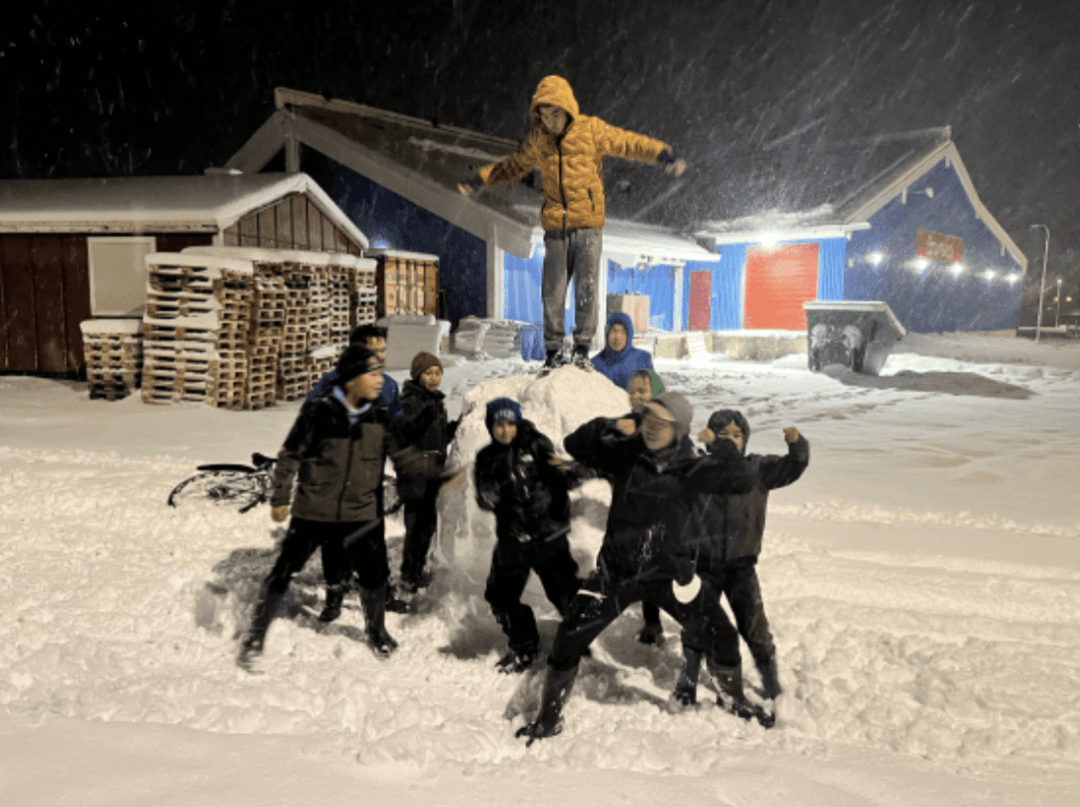Montana State doctoral student receives funding from NSF Arctic Social Sciences Program for research in Greenland

BOZEMAN — A Montana State University doctoral candidate has received funding from the National Science Foundation Arctic Social Sciences Program to support her dissertation research examining fertility and reproductive health decisions in response to climate change and adaptation policies in Greenland.
Malory Peterson received an NSF Arctic Doctoral Dissertation Research Improvement Grant in the Arctic Social Sciences program. The $58,000 award is from the NSF Office of Polar Programs.
“I’m excited because this community-based, engaged research is valuable,” Peterson said.
Peterson is a student in MSU’s individual interdisciplinary doctoral program studying community health and geography. Her research investigates how climate change and climate change adaptation policies affect reproductive decision-making by Kalaallit men and women in Greenland.
Peterson said decisions about reproduction and family size among the Kalaallit are influenced by the availability of social, economic and natural resources, as well as by climate change, which are increasingly affecting Kalaallit ways of life and local economies, including hunting and fishing.
The research is based in ecological systems theory, which suggests that an individual’s development is influenced by interconnected family, institutional and social systems. Her research also makes use of the principles of “community-based participatory research” — that is, research done in partnership with the community.
As part of her work, Peterson conducted interviews in Greenland with 40 reproductive-aged men and women living in two communities, Paamiut and Nuuk. The interviews explored the participants’ perspectives on climate change and factors that influence their fertility decisions. Peterson also conducted in-depth interviews with 25 key stakeholders and policymakers in the hunting and fishing industries, ecotourism, government and health care to identify how policymakers consider fertility and reproductive health in climate adaptation planning.
Peterson is now analyzing the interviews with input from her Kalaallit community research partner, Augustine Rosing. The two recently presented their initial findings at the Greenland Science Week Conference, and this spring, they will share the project’s results with community members, scientists and policymakers and collect feedback. Peterson expects to have her research completed in the spring.
Peterson said that the research results will have implications for Arctic social science research and policy arenas, including health care, natural resource economics and sustainable development.
“In the broader context of global challenges related to fertility and climate change, this research promotes an equitable approach to solving complex problems of natural resource availability and population health,” she said. She added that the project advances historically underrepresented groups in science by engaging women and Kalaallit knowledge-holders as partners in research.
Peterson, who grew up in Oregon, received a bachelor’s degree in biomedical science from Colorado State University and worked as an AmeriCorps member and a certified sexuality educator with youth in a Denver crisis center. She later worked as an epidemiological investigator for the Hawaii State Department of Health. That experience, especially, led her to believe the work could be done in a more culturally sensitive way.
“I was pretty frustrated by the system,” Peterson said. “I was continually running into cultural mismatch in the type of sexual health communication provided to a patient and the cultural context they’re living in,” she said.
She began looking into academic programs and individuals conducting culturally adapted sexual health research, which is how she found Elizabeth Rink, professor in the Department of Human Development and Community Health in the College of Education, Health and Human Development and Peterson’s primary adviser.
Peterson enrolled at MSU in 2019 and earned a master’s in community health before pursuing her doctorate. She also previously received an American Scandinavian Foundation Fellowship, which funded her first trip to Greenland in fall 2022. She is set to graduate with her doctorate in May and has accepted a postdoctoral position with an NSF-funded “Navigating the New Arctic” interdisciplinary research project with University of Alaska Fairbanks and Arizona State University.
“When Malory came to MSU, she began working with our Fort Peck tribal partners on our randomized control trial, We Are Here Now, which uses community-based participatory research as the foundation of the trial’s conceptual model,” Rink said. “She learned quite a bit about the importance of equitably engaging tribal partners in research that is culturally centered, contextually relevant and beneficial to them.
“When Malory suggested she stay at MSU for her Ph.D. and that she wanted to do her Ph.D. research in Greenland, I was confident that she had the (community-based participatory research) skills to work independently in Greenland with Kalaallit, moving between different languages, and navigating a completely different culture and new systems from what she was accustomed to here at MSU and with the Fort Peck Tribes.”
Peterson said her work is motivated by a desire to support communities, especially as they experience the effects of climate change.
“I don’t think, as a society, we will be able to tackle climate change challenges if we’re only motivated by fear,” she said. “One of coolest parts of getting to learn from people in Greenland is what does it look like to be motivated by opportunity, to have faith in positive opportunities from change and have faith that your community will be resilient? I’m personally grateful I get to learn.”